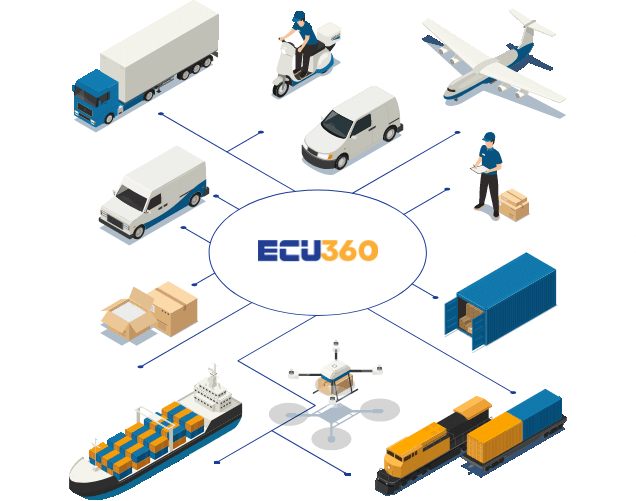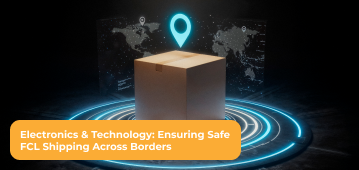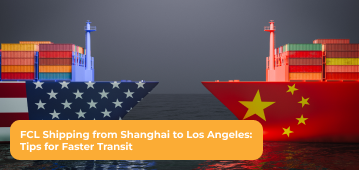Ecommerce Logistics in 2025: 7 Trends That Will Shape the Future of Online Retail
The current arena of E Commerce is undergoing drastic changes day by day, and 2025 brings a new set of challenges and opportunities for retailers and logistics providers. Fast delivery, real-time visibility, sustainable practices, and seamless customer experiences are now essential for growth.
To stay ahead, businesses must adapt their logistics strategy to align with customer expectations and technology advancements. In this blog, we highlight seven key ecommerce logistics trends that are shaping the future of online retail, and how brands can prepare to meet them head-on.
1. Smarter Warehousing with Automation
Warehouses are becoming more intelligent and efficient, thanks to new technologies. The adoption of supply chain automation is helping ecommerce businesses improve accuracy and reduce operational costs. Robotic systems, real-time inventory tracking, and automated sorting are replacing manual tasks.
These logistics innovations in ecommerce allow for faster order processing, lower error rates, and better stock management. As a result, online retailers can meet customer demands more reliably.
Smart warehouses also improve scalability, enabling businesses to handle larger volumes during seasonal peaks without sacrificing quality.
2. Predictive Planning and Real-Time Visibility
In 2025, predictive analytics is no longer optional, it’s essential. By analyzing customer behavior and shipping data, ecommerce companies can forecast demand, avoid inventory shortages, and manage delivery timelines better.
Customers also want to track their orders every step of the way. Real-time order tracking tools are now a standard part of ecommerce experiences. These tools enhance trust and satisfaction by providing clear delivery updates.
With integrated data and predictive technology, businesses can make informed decisions and minimize delays, ensuring a smoother supply chain from warehouse to doorstep.
3. Sustainable Fulfillment Is a Business Priority
Sustainability continues to influence purchasing decisions. Shoppers are more likely to buy from companies that are actively working to reduce their environmental impact.
In response, retailers are embracing sustainable logistics practices like:
- Using recyclable or compostable packaging
- Optimizing delivery routes to reduce emissions
- Switching to electric or hybrid delivery vehicles
- Offering eco-friendly delivery options at checkout
Sustainable strategies not only support the environment but also align with brand values, helping companies build loyalty and meet regulatory requirements.
4. Seamless Omnichannel Logistics
Today’s customers shop across multiple channels, on websites, apps, social media platforms, and even in physical stores. To serve these customers efficiently, ecommerce businesses must offer integrated logistics support.
Omnichannel logistics strategies help unify inventory and fulfillment across all touchpoints. Whether a customer orders online for home delivery or chooses store pickup, the system ensures the right product is available at the right time.
With tools like centralized order management systems, businesses can improve consistency, reduce stockouts, and offer flexible shipping and return options across platforms.
5. Global Expansion Through Efficient Cross-Border Shipping
As online retail continues to grow, businesses are expanding into new regions. However, international growth brings complexity in shipping, customs, and local regulations.
Efficient cross-border ecommerce logistics simplifies these challenges. By partnering with logistics experts and using digital documentation, businesses can streamline global deliveries and reduce customs delays.
Access to international markets also requires flexible solutions, such as localized delivery partners and region-specific packaging. A strong cross-border strategy opens doors to new customer segments while keeping fulfillment operations efficient.
6. Agile Fulfillment Through Third-Party Logistics (3PL)
Not every retailer can manage logistics in-house. That’s why many growing ecommerce brands are turning to 3PL logistics for ecommerce to stay flexible and competitive.
A reliable third-party logistics partner can offer:
- Warehousing in strategic locations
- Technology for order management and tracking
- Scalable delivery services during high demand
- Customized packaging and labeling
By outsourcing to 3PL providers, businesses can reduce costs and focus on product development, marketing, and customer service. A 3PL also brings valuable industry expertise, allowing brands to scale without growing their internal teams.
7. Fast, Flexible, and Customer-Focused Fulfillment
Speed and convenience are top priorities for online shoppers in 2025. Consumers expect quick delivery and multiple options that fit their lifestyle; such as scheduled deliveries, pickup points, or contactless drop-offs.
To meet these expectations, businesses are investing in ecommerce delivery solutions that focus on flexibility and customer experience. Technologies like dynamic route optimization, automated notifications, and multi-location fulfillment help ensure faster delivery without increasing costs.
This shift also supports better customer retention, as consumers are more likely to return to brands that consistently deliver a positive post-purchase experience.
How ECU360 Supports the Future of Ecommerce Supply Chains
At ECU360, we understand the demands of modern ecommerce and offer smart solutions tailored to meet them. Our platform helps businesses optimize their logistics operations with technology that simplifies shipping, enhances visibility, and reduces cost.
Here’s how we empowers your ecommerce growth:
- Centralized control of your entire ecommerce supply chain
- Real-time insights into order status and performance
- Seamless integrations with ecommerce platforms
- Access to a network of 3PLs and fulfillment partners
- Tools to improve delivery efficiency and reduce waste
Whether you’re a growing online store or an established brand, ECU360 helps you build a scalable, future-ready logistics strategy.
Final Thoughts
The future of online retail depends on how well businesses can adapt their logistics models to meet rising consumer demands. From predictive planning and automation to sustainable practices and global expansion, ecommerce logistics in 2025 is smarter, faster, and more customer-focused than ever before.
Retailers that embrace these trends will not only improve operations but also create more engaging, trustworthy, and efficient shopping experiences. As the industry evolves, staying updated with these shifts, and choosing the right logistics partner can set your business apart.
Let ECU360 help you stay ahead of the curve and build a logistics framework designed for tomorrow’s ecommerce.
Like





Comments